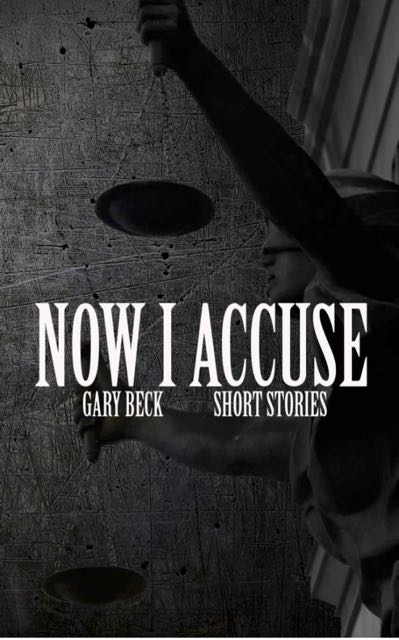Gary Beck, Now I Accuse
reviewed by Alison McBain

Now I Accuse Publisher: Winter Goose Publishing Date: January 10, 2018 Length: 150 pages ISBN: 1941058752; 9781941058756 |
I’ve been a fan of Gary Beck’s poetry ever since I read his collection Resonance a couple years back. Since then, I’ve reviewed six of his books for Bewildering Stories, and I always enjoy finding new aspects to his poetic voice that are both inspiring and thought-provoking.
However, Mr. Beck is also a fiction writer, and I was pleased to take a look at his latest collection of short stories, Now I Accuse.
I found Mr. Beck’s short stories to be as varied as his poetry, both in form and content, although they deal with similar themes. From longer and historical stories like the collection’s namesake, “Now I Accuse,” to shorter, modern vignettes like “Assimilation,” the stories cover a wide range of topics.
However, those acquainted with Mr. Beck’s work might see some familiar themes to his short stories, including poverty, New York City and city life in general, acting and writing, history and war, dysfunctional families and problematic relationships, unions, and substance abuse.
The stories are mostly told in first person with the remainder in third person. As might be expected of a poet, the description is wonderfully evocative, such as in the story “Summer Foray”:
| The faint light dimly lit the length of the gloomy, ancient bar, casting a feeble glow on an old, weather-beaten bartender talking baseball to a barfly. A sodden woman sat hunched and mumbling at a beer-stained table. |
In just a couple of sentences, Mr. Beck paints a picture of a depressing place filled with dismal people who are too far sunken into the routines of their lives to ever get out. Much of the description in each story in the collection is the same: visual, often heartbreaking, and effortless to picture.
While many of the stories deal with the more negative aspects to the complexities of life, there are a few that look on the lighter side. One such example is “My Daughter, the Tyrant.” In the story, a father is ruled by his young daughter’s whims about animals. Each animal she sees she wants for a pet until their home is overflowing with creatures.
Then there’s the fairy-tale-like story of “Journey,” wherein a traveling prince discovers his retinue is composed of braggarts. The prince’s mission becomes to find one honest man.
Or the ego of “An Actor Prepares,” which focuses on Andrew, an actor so lazy and unprepared for his theater role that the reader wonders how he ever believes he’ll become a movie star.
But despite some of these lighter pieces, many of the stories are tragedy, not comedy. One such example is perhaps my favorite piece of the collection, “The House in the Stove.” In the story, the children of a poor family are always cold. The family has an offer of charity assistance because of their poverty, but the father is too proud and declines the help. But not before the main character, a boy of five, speaks to the stranger at the door.
The man starts to tell him a tale of a family who lived in a stove and were always warm, but the man has to leave before the story is finished. Not long afterwards, the boy gets pneumonia and is told he’ll die and be cremated. The boy is happy about it, because he thinks it means he will be in the man’s story afterwards, that he’ll live in a stove and always be warm.
This story combines elements of fairy tale and reality to create a powerful and beautifully sad piece, and it really touched me as a reader. Likewise, many of the stories have similar tragic twists that show an “if only” aspect to the lives of the characters. If only a mistake hadn’t been made, if only a person had or hadn’t spoken, if only a person were kinder or more charitable or less proud, the stories of the characters wouldn’t be tragic. But these “if onlys” don’t come to pass, and often the characters become trapped, even if only in their own minds.
The collection as a whole is very interesting and captivating, and I had a hard time putting it down. I hope you enjoy reading it as much as I did.
Copyright © 2018 by Alison McBain

